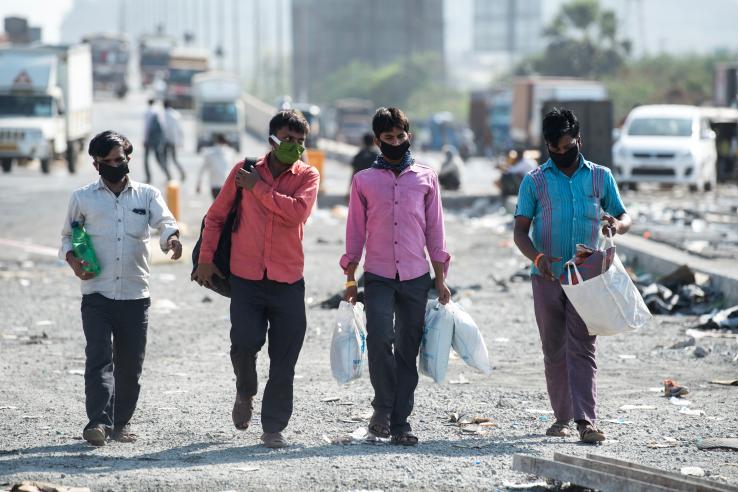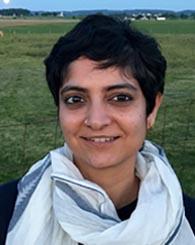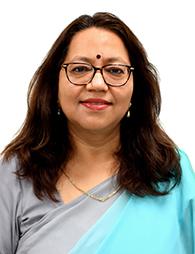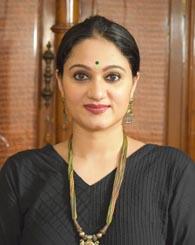Webinar: Inter-state migration in India in the time of COVID-19
Partners:

CLEAR/J-PAL South Asia is hosting a webinar on Inter-state migration in India in the time of COVID-19.
The outbreak of the novel coronavirus has led to severe disruptions in agricultural supply chains in India, which rely heavily on migrant labor. Simultaneously, several out-of-work migrant workers across Indian cities decided to return to their home states following the announcement of nationwide lockdown measures in March 2020. Based on available statistics and official reports, it is estimated that 11 million migrants returned to their state of origin between March and June 2020. This exodus of migrant workers, primarily from urban to rural parts of the country, has given rise to pressing challenges for local labor markets. While source states now face an excess in labor supply, destination states are struggling to address the gaps caused due to a labor deficit.
In the wake of these dynamic flows of the migrant labor force due to COVID-19 and resulting lockdown measures, state governments, policymakers, and researchers are faced with a number of complex questions: Will the ongoing pandemic make local, partial, or full lockdowns necessary? Will returning migrants settle in their home states or will they return once lockdown restrictions are lifted? In this fast-evolving context, it is challenging to estimate an adequate policy strategy for the long-run. Should home states plan to absorb these returning migrants into the local economy? Or should destination states attempt to draw them back? Should the Central government encourage the inter-state mobility of the workers or instead, prioritise local development within states?
This webinar will bring together knowledge and perspectives from government and research to discuss many of these questions and shed light on the challenges and possible opportunities emerging from inter-state migration in India in the wake of the pandemic.
Speakers

Clément Imbert is an Assistant Professor of Economics at the University of Warwick. His research focuses on governance and labor markets, specifically on the implementation and labor market effects of social programs. Clément holds a Ph.D. from the Paris School of Economics.

Mekhala Krishnamurthy is an Associate Professor of Sociology & Anthropology at Ashoka University in India and Senior Fellow and Director of the State Capacity Initiative at the Center for Policy Research (CPR), New Delhi. Her research focuses on the state and market in contemporary India. Mekhala’s other areas of research include agricultural markets, regional capitalism and economic life in India as well as the institutional dynamics of public systems and bureaucracies in the country.

Alka Upadhyaya is the Additional Secretary at the Ministry of Rural Development, Government of India. Previously, she was the Joint Secretary for Rural Connectivity and Skills at the Ministry of Rural Development. Alka has worked extensively in field operations, regulatory activities, and the implementation of various development programs for the Government. Alka has over 10 years’ experience in the rural roads sector, serving as the CEO of the Madhya Pradesh Rural Development Authority at the state level and now as the Joint Secretary for Rural Connectivity for the central government. Alka has also worked as a Managing Director for the National Rural Livelihoods Mission to build the strength of self-help groups (SHGs) and help rural women become more financially self-reliant. Alka holds a Masters in Public Administration from Syracuse University.
Moderator

Sharanya Chandran is a Senior Policy Manager at J-PAL South Asia at IFMR. Based in New Delhi, she supports the regional team’s outreach activities to promote evidence-based policy and programming for poverty alleviation in South Asia. She leads policy outreach for the Labor Markets and Firms sectors at J-PAL South Asia and also manages J-PAL’s institutional partnership with the Government of Punjab. Prior to joining J-PAL, Sharanya worked as a Principal Consultant for the National Skill Development Agency, Government of India, where she worked with multiple stakeholders on addressing policy and implementation gaps in the skill development. She has also worked with the Planning Commission of India as a Young Professional in the Office of the Minister of State for Planning. Sharanya holds a Master’s degree in Development Studies from the London School of Economics and Political Science (as an INLAKS scholar) and a Bachelor’s degree in Economics from the Lady Shri Ram College for Women, Delhi University.
